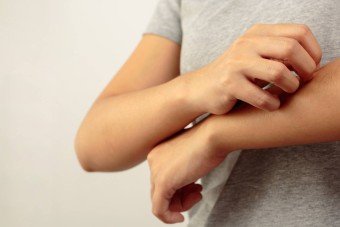
What is it?
Dehydration occurs when the body consumes more fluid than its intake, and the body lacks sufficient fluids to maintain its normal functions. The most common cause is not drinking enough water, especially during strenuous exercises in extreme heat.
Dehydration may also occur after severe diarrhea or vomiting, due to the loss of large volume of water and electrolytes in a short period of time. In addition, if you have a fever, the more you sweat, the higher the dehydration level that you will encounter. Last but not least, patients taking diuretics or diabetes sufferers may also urinate more often and become dehydrated. Symptoms of dehydration include: extremely thirsty, decreased urination, dark-colored urine, fatigue or light headedness. Dehydration can severely affect our bodily functions. For example, insufficient electrolytes may cause seizure or hypovolemic shock with symptoms like palpitations, dizziness, shortness of breath, and lead to unconsciousness and death.
High Risk Groups
Infants: It is easy to become dehydrated after severe diarrhea or vomiting. If a baby cries with no tears, has a dry diaper for a few hours, tired or cranky, he or she may be dehydrated.
Elderlies: Older adults may have reduced sensation of thirst. Certain medications for chronic illnesses like diabetes or dementia increases urinary frequency, therefore patients run a higher risk of becoming dehydrated due to insufficient water intake.
Severity of Dehydration
Mild: In a stable state, slightly dry skin, slightly sunken eyes, less urine.
Moderate: May feel malaise, dry skin, sunken eyes, notably less urine.
Severe: May feel drowsy, very dry skin, severe sunken eyes, very low urine.
Diagnosis
You may also need blood tests or a urine test. A blood test can examine the level of electrolytes, especially sodium and potassium, and liver functions; while a urine test can help to determine the degree of dehydration.
Treatment
- Replenish water and electrolytes, like water, sports drinks, lemonades, juices, but avoid caffeinated or carbonated drinks.
- Do not let a dehydrated baby drink water, as it may further dilute the low level of electrolytes in the body. A doctor prescription of oral rehydration solution, with specific ratio of potassium, sodium, and sugar, should be adopted.
- Those presented with severe dehydration should be treated at the hospital, with intravenous delivery of water and electrolytes to speed up recovery.
- Those presented with severe diarrhea or vomiting should also seek immediate medical help, and take antidiarrheal or antiemetic medication.


.jpg)


























